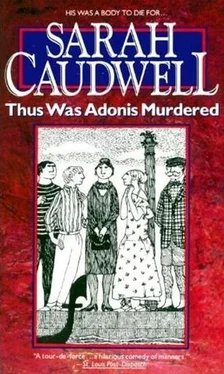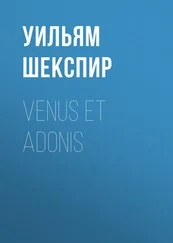“And your accommodation,” said Ragwort, “will also be in a style commensurate with the value of your advice. Danieli’s, I suppose. Or perhaps the Gritti Palace?”
It appeared that the estate of the deceased great-aunt included a little palazzo just off the Grand Canal. The beneficiary had been good enough to indicate that Timothy would be welcome to stay there.
“Most agreeable,” said Selena, wrinkling her nose.
“Delightful,” said Ragwort, raising an eyebrow.
“Makes one sick,” said Cantrip.
The thing that made Selena wrinkle her nose, Ragwort raise an eyebrow and Cantrip sick was not mere envy of Timothy’s good fortune. What chiefly irked them was its effect on Henry, who for several days had not ceased to comment on it as an instance of the wonderful rewards heaped on the just — being those who do not spend their mornings drinking coffee — by comparison with the unjust — being those who do. In the eternal struggle of Counsel against Clerks to gain a moment in which the former may call their souls their own, some yards of ground had been lost. Coffees were curtailed, lunches abbreviated, dinner engagements cancelled.
But they are tolerant, good-natured young people in 62 New Square, their minds always open to equitable compromise. Upon Timothy’s undertaking that on the eve of his departure, that is to say on Friday, he would buy dinner for all those adversely affected, it was agreed that no more should be said of the matter. I pointed out that I myself had some claim to be among his guests; to which he answered, very nicely, that he had not imagined I could think myself excluded.
We were to meet in the Corkscrew, a wine bar on the north side of High Holborn, popular on the grounds of proximity with the members of Lincoln’s Inn. Our entertainment was to include two further letters from Julia, which even Selena, in the conditions obtaining in Chambers, had not yet had time to read.
At seven o’clock, I was the first to arrive. I sat down at one of the little round oak tables and lit the candle provided for its illumination. The bar of the Corkscrew is designed for those who prefer a certain murkiness: long and narrow in construction, it admits, even at noon, the minimum of daylight; most of what does get in is absorbed in the dark ceiling and wood-panelled walls; there is left, after this, just so much as may comfortably be reflected in the surface of a polished table or the glint of a wine glass. To light a candle there is almost in itself enough to inspire in those gathered round it a sense of cheerful conspiracy.
I did not have long to wait for company. Timothy, arriving with Ragwort and Selena, stopped at the bar to acquire a bottle of Nierstein and a bowl of biscuits. The other two joined me at once in the circle of candlelight.
“Why biscuits?” I asked. “Timothy is just going to buy us an excellent dinner.”
“We’ll be eating late,” said Ragwort. “It’s Cantrip’s night for reading the Scuttle.”
It is thought prudent by the proprietors of the Daily Scuttle that their publication, before it goes to press, should be read by a lawyer. They are subject to the endearing superstition that they will protect themselves, by this ritual, against all claims and proceedings for libel, blasphemy, obscenity, sedition, contempt of court, scandalum magnatum or any other crime or civil wrong known to English law. In the evenings this work is contracted out on a freelance basis to various indigent members of the Junior Bar. Though the law of libel and so forth is not peculiarly within the province of the Chancery Bar, the post of Friday reader, for reasons now lost in antiquity, is always held by one of the members of 62 New Square. It is currently occupied by Cantrip. If hunger compelled us to begin dinner without him, good fellowship would not allow us to end it in like manner. We would therefore be dining late. In the meantime, the Corkscrew would enjoy our custom.
It is poignant to reflect that as we sat drinking Nierstein in the convivial quarter-light of the Corkscrew poor Julia must already have been trying to persuade the Venetian police that the presence of her Finance Act at the bedside of the corpse — but I must not anticipate the orderly development of my narrative. We drank untroubled by knowledge of Julia’s difficulties: it was the last occasion for some time that we were able to do so.
As to the unhappy consequences of Timothy’s going to Venice, no more, of course, was to be said. Still—
“Are you really sure it is proper,” said Ragwort, “to see the lay client without a solicitor present? To explain, you know, in words of one syllable what you are telling him?”
“And in words of four syllables what he is telling you,” said Selena.
“Quite sure,” said Timothy. “One’s instructing solicitor is, of course, entitled to be present, but he may quite properly waive his rights in the matter.”
“Well, if you say so,” said Ragwort, “then naturally we accept it. Since you are buying us dinner. But what seems so strikingly unconventional is that you should go to the client. It is surely a long-established rule of etiquette that the client comes to Counsel. It has always been my understanding that only in the most exceptional cases, such as grave disability—”
“My client,” said Timothy, “does, in a sense, suffer from a disability. He can’t face coming to England. He spent his thirteenth year at an English public school and this inspired in him such an aversion to this country that he has since refused to set foot in it.”
“How eccentric,” said Selena. The honey of her voice was seasoned, as it were, with lemon: herself much attached to her native land, she is inclined to take personally any disparagement of it. “If he doesn’t mind living in Cyprus, dodging the crossfire between the Turks and the Greeks, it is quite absurd of him to be afraid of coming to England. And if he is prepared to go to Italy, which, as we all know, is at present in the grip of a vast crime wave—”
“Is it?” said Ragwort.
“My dear Ragwort, of course it is,” said Selena. “Crime in Italy is a national industry. If an Italian isn’t murdering someone in Calabria, it’s only because he’s too busy kidnapping someone else in Lombardy. Or embezzling public funds in Friuli. Or stealing little-known pictures from churches in Verona. Or burgling the Courthouse at Monza. That, at any rate, if The Times is to be relied on, is how they have spent the past week, and we have no reason to think it untypical.”
“My client,” said Timothy, “is not troubled, as I understand it, by the possibility of being murdered, kidnapped or embezzled. His objection to England is founded on the belief that the temperature never rises above forty degrees Fahrenheit, that the only food available is tepid rice pudding and that the population consists entirely of bullying prefects and ragging fourth-formers.”
“I wonder if it’s wise,” said Selena, “to send you to talk to him, Timothy. You do look very English, you know. You’ll probably remind him of his former geometry master and he’ll run away and hide.”
I seem to have omitted to give my readers any description of my former pupil. It is true, however, that he does have that long-boned, angular, straw-coloured look which is widely regarded as characteristic of the Englishman.
“Precisely what is it,” I asked, “that you have to persuade him to do?”
“I have to persuade him,” said Timothy, “to become domiciled in England before the 19th of December of this year.” He leant back comfortably in his chair, not looking like a man discouraged by the difficulty of the task before him. “On that date, which is his twenty-fifth birthday, the discretionary trust will come to an end. My client, as the only surviving descendant of his late grandfather, will scoop the jackpot. The capital transfer tax payable on that event, if my client is then domiciled outside the United Kingdom, will be something on the order of £450,000. If, on the other hand, he were then to be domiciled in England, tax would, of course, be charged at a concessionary rate under the transitional provisions of paragraph 14 to Schedule 5 of the Finance Act 1975 and he would have to pay only fifteen per cent of that sum.”
Читать дальше











